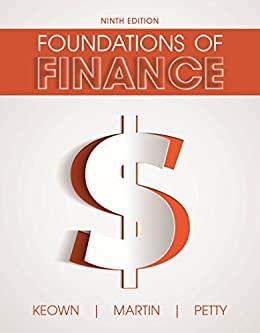Two years ago your corporate treasurer purchased for the firm a 20-year bond at its par value
Question:
Two years ago your corporate treasurer purchased for the firm a 20-year bond at its par value of $1,000. The coupon rate on this security is 8 percent. Interest payments are made to bondholders once a year. Currently, bonds of this particular risk class are yielding investors 9 percent. A cash shortage has forced you to instruct your treasurer to liquidate the bond.
a. At what price will your bond be sold? Assume annual compounding.
b. What will be the amount of your gain or loss over the original purchase price?
c. What would be the amount of your gain or loss had the treasurer originally purchased a bond with a 4-year rather than a 20-year maturity? (Assume all characteristics of the bonds are identical except their maturity periods.)
d. What do we call this type of risk assumed by your corporate treasurer?
CouponA coupon or coupon payment is the annual interest rate paid on a bond, expressed as a percentage of the face value and paid from issue date until maturity. Coupons are usually referred to in terms of the coupon rate (the sum of coupons paid in a... Maturity
Maturity is the date on which the life of a transaction or financial instrument ends, after which it must either be renewed, or it will cease to exist. The term is commonly used for deposits, foreign exchange spot, and forward transactions, interest... Par Value
Par value is the face value of a bond. Par value is important for a bond or fixed-income instrument because it determines its maturity value as well as the dollar value of coupon payments. The market price of a bond may be above or below par,...
Step by Step Answer:

Foundations Of Finance
ISBN: 9780134083285
9th Edition
Authors: Arthur J. Keown, John H. Martin, J. William Petty





